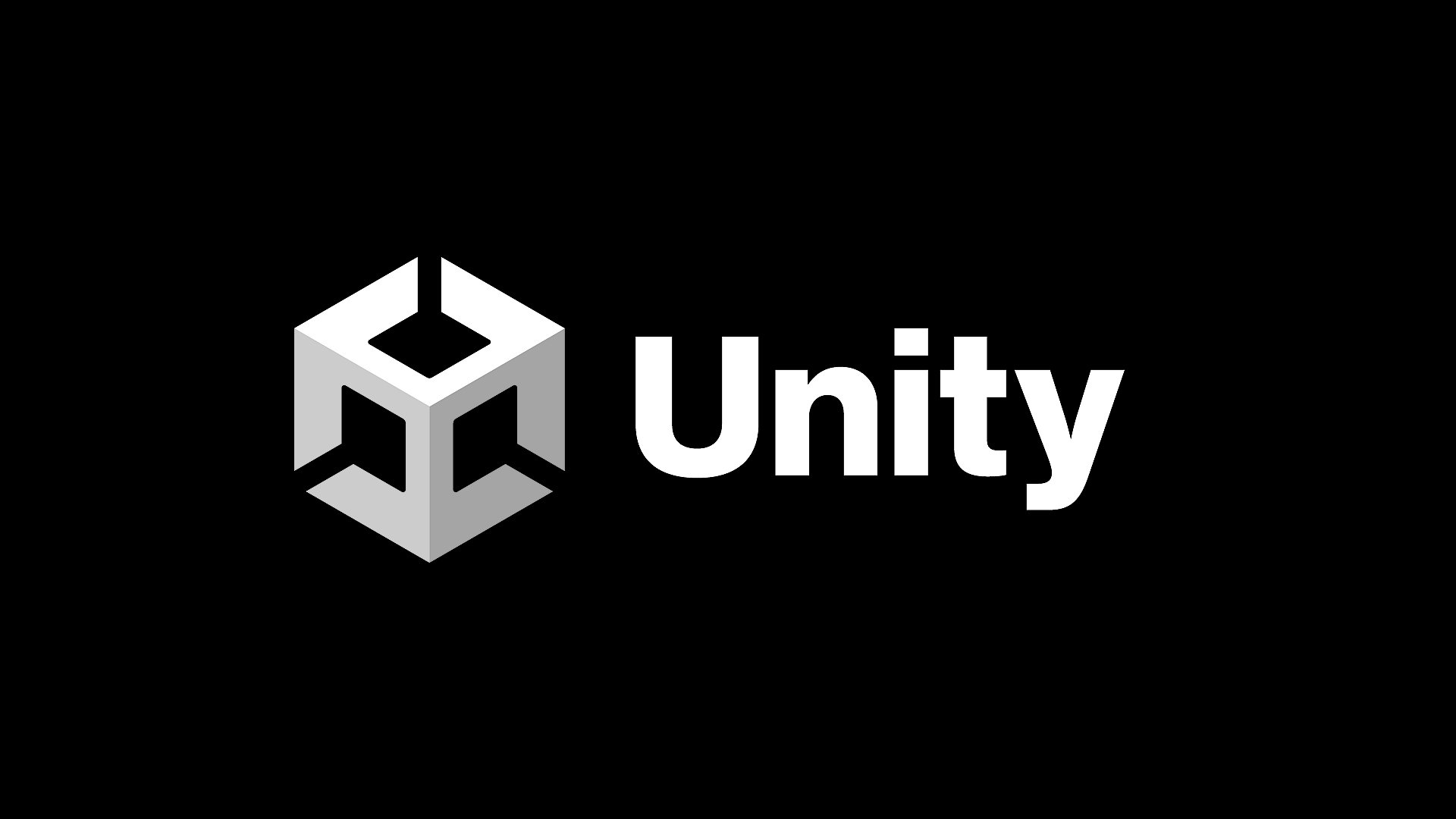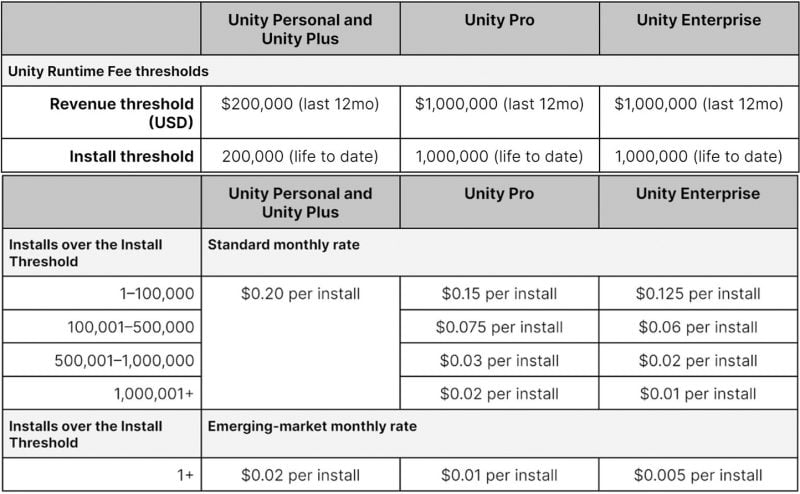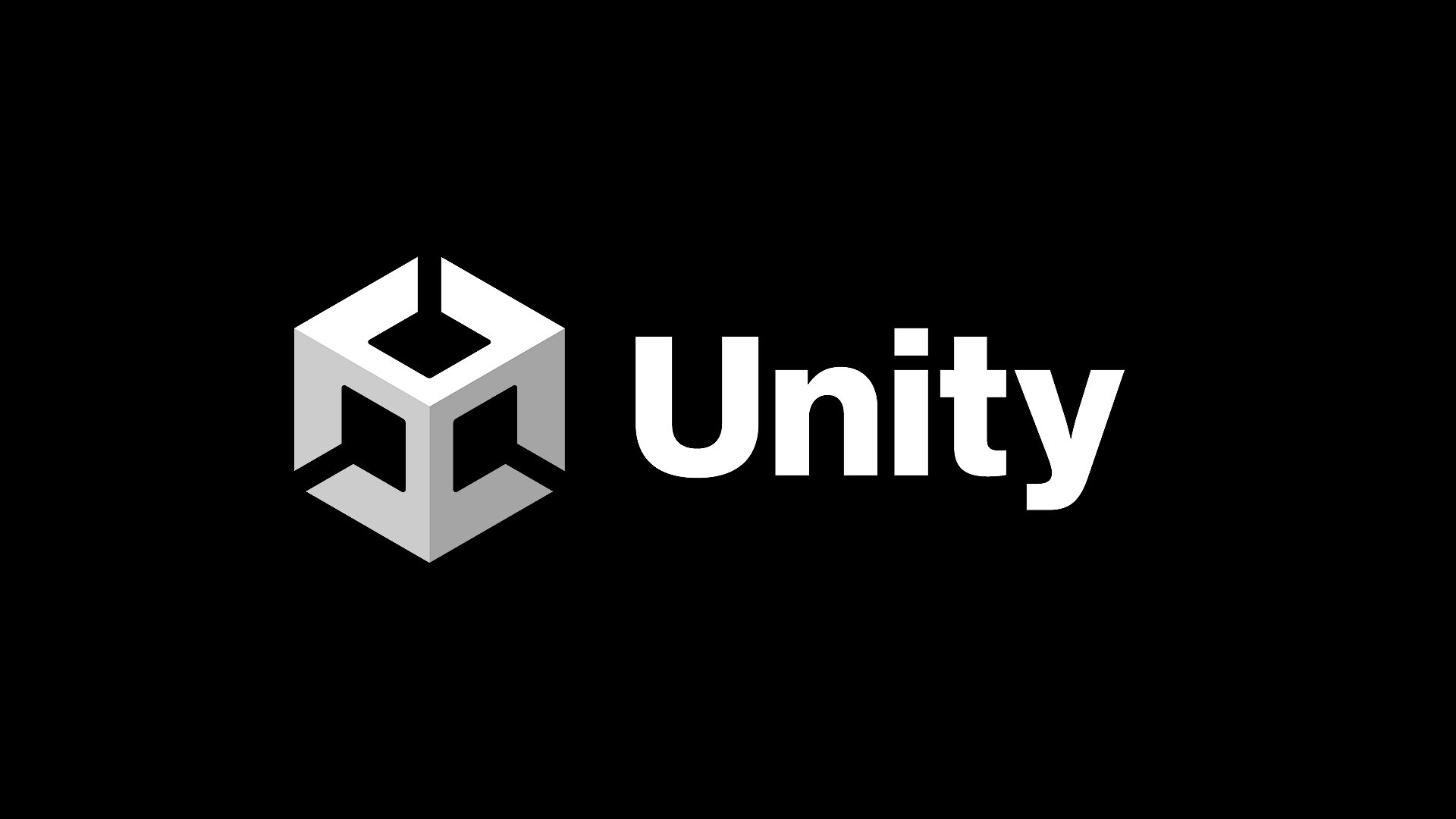
- Unity faces backlash from the gaming developer community over a new “runtime fee” model that charges developers flat fee per installation.
- Developers fear potential misuse by users and the impact on charity bundles and subscription services like Xbox Game Pass.
- Despite Unity’s reaffirmation about the new policy and their “fraud detection tool,” developer discontent continues, sparking doubts about the engine’s future popularity.
Unity is receiving a lot of flak from the game development community after they published a blog post describing a new monetization strategy. In the gaming community, Unity’s recent announcement of a “runtime fee” for game makers has sparked a flurry of outrage. When a player installs a game made using the Unity Engine, developers will have to pay a set price, according to the new cost structure that the business revealed. Developers, though, are furious about this action.
This fee would only be charged if a game has reached a revenue milestone of $200,000 in the previous 12 months and at least 200,000 installations since the game’s launch, according to Unity’s blog post. Even while the thresholds are put up to prevent users from abusing the system, the developers are nonetheless rather concerned about possible nefarious activities. The fact that players can keep installing and uninstalling the game to put a significant financial burden on the developers is one of the apparent worries.
Crucially, the $200,000 in sales and 200,000 installations relate to Unity Plus, the company’s tier 1 subscription. The threshold cap rises to $1,000,000 in sales and 1,000,000 installations since the game’s release for users using Unity Pro and Enterprise.
Depending on the Unity subscription tier, Unity imposes a predetermined price for each installation whenever games surpass the revenue and installation threshold. The table below provides an overview of the fee schedule:

One of the issues brought up was how Unity’s recent decision will affect the games that are part of Xbox Game Pass. Independent game developer Aggro Crabs voiced their displeasure with Unity’s new price structure, emphasizing how it could “threaten” their ability to remain in business.
SIGH pic.twitter.com/YgJEKGVQEI
AGGRO CRAB (@AggroCrabGames) September 12, 2023
Given the potential for “review bombing” to escalate to a whole new level, I think the worries raised by developers are legit. A game’s ranking in the digital store is usually negatively impacted when it receives negative reviews, but that’s about it.
Players can now regularly install and remove the game as a way to express their discontent with developers thanks to Unity’s new business model. And why wouldn’t they accept it if they know that the developers will be hit with hefty fees for doing so? There are always some toxic people in gaming communities!
Following Unity’s surprising revelation, the internet was in a frenzy of wrath. The gaming website Axios requested clarity from Unity Create’s president, Marc Whitten.
Let’s start by addressing the most pressing issue. Sure, the developers will get paid if you remove and then reinstall the game. Even if it’s on a different device, uninstalling and reinstalling is considered two installations and two charges.
I got some clarifications from Unity regarding their plan to charge developers per game install (after clearing thresholds)
– If a player deletes a game and re-installs it, that’s 2 installs, 2 charges
– Same if they install on 2 devices
– Charity games/bundles exempted from fees https://t.co/1GVuE0NXHC“>https://t.co/1GVuE0NXHCStephen Totilo (@stephentotilo) September 12, 2023
Whitten claims that developers only have to pay for the first installation and the second installation if they choose to put the game on two different devices. The information in their FAQ, which clearly says, “The creator will need to pay for all future installs,” seems to contradict this statement, though. The rationale is that Unity only receives aggregate data and does not obtain end-player information.”
Whitten told developers that they wouldn’t be “on the hook” because the fees would go to the game distributors rather than the producers of the titles that are available on Xbox Game Pass. For Xbox Game Pass titles, Microsoft will be the provider. Furthermore, there won’t be any fees associated with installing game demos unless the demos are a part of the whole game bundle. Presumably Aggro Crabs can exhale with relief, at least for the time being.
The installation of these games will incur costs for the developers. This could be problematic, particularly for independent game creators who depend on early access to get vital player input prior to the full release of the game. If early access installations are paid for—which is unclear at this time—players may become concerned as they may have to pay twice for the game (once for early access or beta and once more for the complete installation).
Regarding the nefarious “install-bombing” worries, Whitten clarified that “fraud detection tools” are in place to make sure that doesn’t occur. In answer to a worried studio’s question regarding installation tracking, Unity further corroborated this on their official Twitter account. Their unique data architecture, they added, is used to guarantee a “accurate determination of the number of times the runtime is distributed for a given project,” thereby preventing system abuse.
We leverage our own proprietary data model, so you can appreciate that we won t go into a lot of detail, but we believe it gives an accurate determination of the number of times the runtime is distributed for a given project.
Unity (@unity) September 12, 2023
There is evident dissatisfaction with this latest move among game creators, especially those who have spent a great deal of time learning the Unity engine. The approach has caused significant displeasure among developers, both indie and larger publishing houses. It is largely directed at major game developers like Activision Blizzardor EA, who can easily meet Unity’s defined benchmarks. Although Unity has said that these costs will ultimately only apply to about 10% of Unity developers, the long-term effects are yet unknown and will only become apparent in due course.
Developers will undoubtedly keep protesting Unity’s new pricing structure. The question still stands as to whether Unity’s severe criticism would discourage it or if these creators will be forced to look for other game engines, such as Godot, in order to get around Unity’s expenses.
